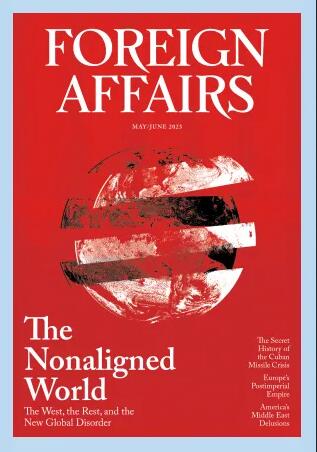The Consequences of the Treaty of Brest-Litovsk for the 1918 UPR in German and Austrian Historiography
IF 6.3
2区 社会学
Q1 INTERNATIONAL RELATIONS
引用次数: 0
Abstract
The relevance of this topic is conditioned by the fact that in the history of the Ukrainian revolution from 1917 to 1921, additional aspects are revealed when inspecting the terms of the signed Brest-Litovsk peace treaty between the Ukrainian Central Rada (UCR) and Germany and Austria-Hungary. The study includes an analysis of the circumstances that prompted the Ukrainian leadership to ask for help from the Quadruple Alliance (QA) in February 1918 and conclude a military convention with them. The conclusion of the agreement is a particularly important moment in the history of Ukraine, as it fundamentally affected the future, namely, it contributed to maintaining the country's independence and development. The main purpose of the study is to investigate and analyse the changes that have occurred since the conclusion of the agreement between Ukraine and Austria-Hungary and Germany. The object of research is the process of concluding the Treaty of Brest-Litovsk, and the subject is the document itself. The following scientific methods were used when writing the paper: structural and functional, dialectical, logical analysis, synthesis, comparative analysis, analysis of scientific literature, and generalisation. The main results are the analysis of the practical and theoretical consequences of the peace treaty on the fate of the Ukrainian People's Republic (UPR). The practical significance of the study is that by investigating the mistakes of the UCR in the state creation, it would help to avoid similar problems in the future. During the writing of the paper, statistical data, scientific studies, and historical sources were analysed and scientific works of political figures of that time were reviewed. Important are the works of the chairman of the Central Rada of the UPR Mykhailo Hrushevsky and political and public figure Volodymyr Vynnychenko布列斯特-里托夫斯克条约对1918年普遍定期审议在德国和奥地利史学上的影响
这一主题的相关性取决于这样一个事实,即在1917年至1921年的乌克兰革命历史中,在检查乌克兰中央拉达(UCR)与德国和奥匈帝国之间签署的布列斯特-里托夫斯克和平条约的条款时,揭示了其他方面。该研究包括对促使乌克兰领导人在1918年2月向四国联盟(QA)寻求帮助并与他们签订军事公约的情况的分析。该协定的缔结是乌克兰历史上一个特别重要的时刻,因为它从根本上影响到未来,也就是说,它有助于维持该国的独立和发展。这项研究的主要目的是调查和分析自乌克兰与奥匈帝国和德国签订协议以来发生的变化。研究对象是《布列斯特-里托夫斯克条约》的缔结过程,研究对象是该条约本身。在撰写论文时使用了以下科学方法:结构和功能分析,辩证分析,逻辑分析,综合分析,比较分析,科学文献分析和概括。主要成果是分析和平条约对乌克兰人民共和国(普遍定期审议)命运的实际和理论后果。本研究的现实意义在于,通过调查UCR在国家创建中的错误,有助于避免今后出现类似的问题。在撰写论文的过程中,对统计数据、科学研究和历史资料进行了分析,并对当时政治人物的科学著作进行了回顾。重要的是普遍定期审议中央拉达主席米哈伊洛·赫鲁晓夫斯基和政治和公众人物弗拉基米尔·维尼琴科的作品
本文章由计算机程序翻译,如有差异,请以英文原文为准。
求助全文
约1分钟内获得全文
求助全文
来源期刊

Foreign Affairs
INTERNATIONAL RELATIONS-
CiteScore
4.80
自引率
0.00%
发文量
2
期刊介绍:
Founded in 1922, Foreign Affairs is a prominent American magazine that focuses on international relations and U.S. foreign policy. It is published by the Council on Foreign Relations, an esteemed nonpartisan think tank and membership organization dedicated to analyzing U.S. foreign policy and global affairs. While the print magazine is released every two months, the website offers daily articles and publishes anthologies every other month.
 求助内容:
求助内容: 应助结果提醒方式:
应助结果提醒方式:


